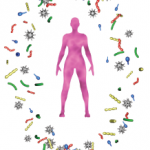“Multiple lines of investigation are focusing on various strategies, including bacteriotherapy (fecal transplant), probiotics, probiotics and bioactives (targeting molecules produced by gut bacteria),” says Dr. Scher. He acknowledges that more studies are needed. That said, Dr. Scher’s work suggests that treatments that focus on curbing the spread of P. copri in the gut may delay or prevent the onset of RA.
Dr. Pullen is a medical writer based in the Chicago area.
ad goes here:advert-1
ADVERTISEMENT
SCROLL TO CONTINUE
Reference
1. Scher JU, Sczesnak A, Longman RS, et al. Expansion of intestinal Prevotella copri correlates with enhanced susceptibility to arthritis. Elife. 2013;2:e01202.


